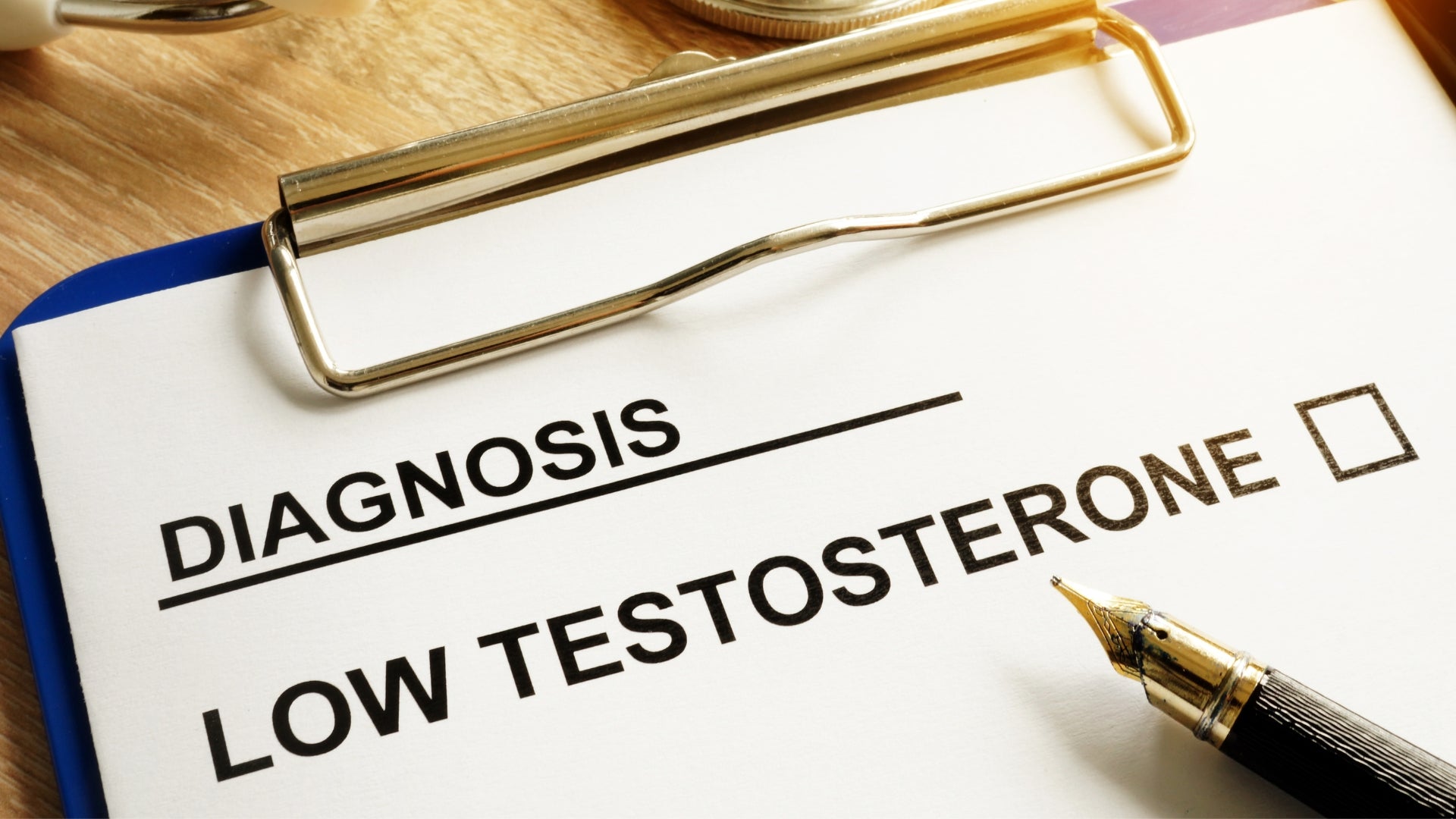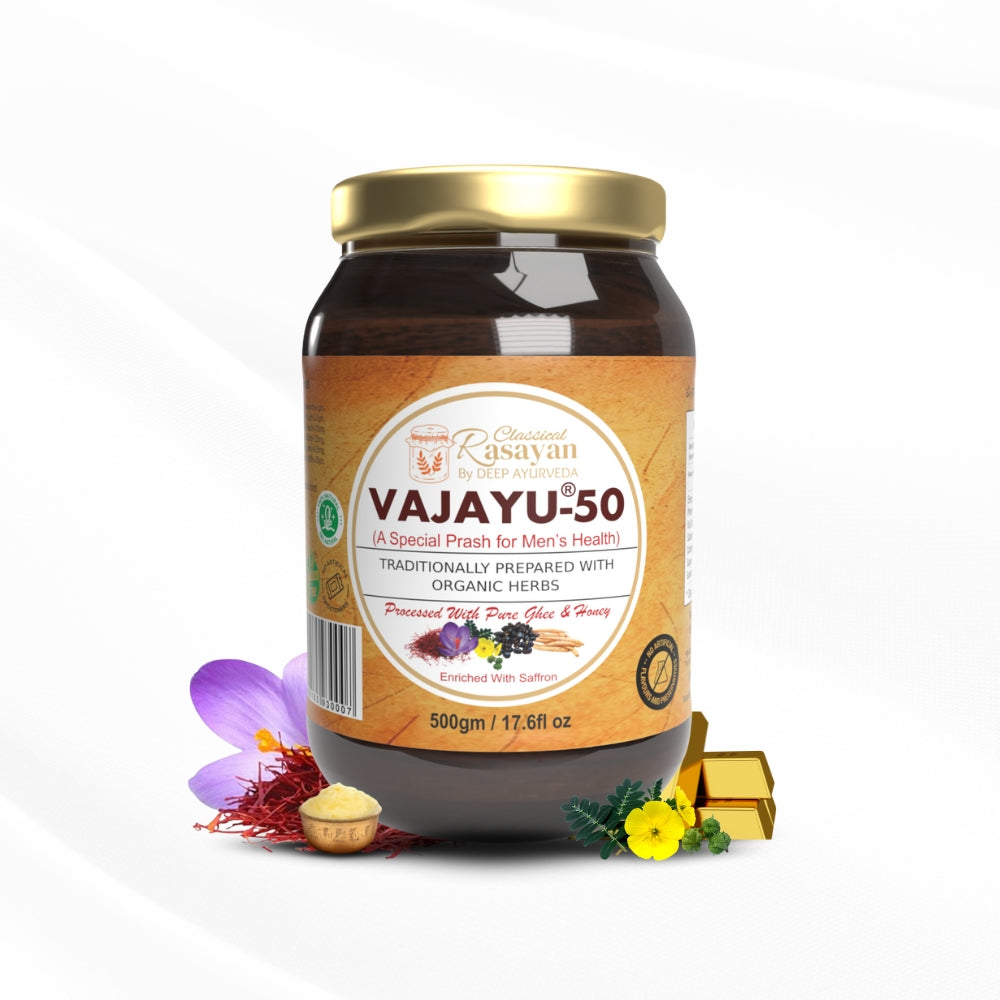आपने खेल देखते समय सप्लीमेंट्स के विज्ञापन देखे होंगे जो कम टेस्टोस्टेरोन को कम करने में मदद करने का दावा करते हैं। इन विज्ञापनों में कहा जाता है कि ये आपकी सेक्स ड्राइव को बढ़ा सकते हैं, आपकी मांसपेशियों को मजबूत बना सकते हैं और यहां तक कि "पुरुष रजोनिवृत्ति" में भी मदद कर सकते हैं।
लेकिन टेस्टोस्टेरोन के कम स्तर या लो टी के बारे में सच्चाई इन विज्ञापनों में बताए गए स्तर से कहीं ज़्यादा जटिल है। लो टी, जिसे हाइपोगोनाडिज्म भी कहा जाता है, एक वास्तविक चिकित्सा समस्या है। इसके लिए सप्लीमेंट लेना सिर्फ़ बड़ी मांसपेशियाँ पाने या अपने यौन जीवन को बेहतर बनाने का एक त्वरित उपाय नहीं है।
कम टेस्टोस्टेरोन के बारे में बहुत सी गलतफहमियाँ और गलत जानकारी मौजूद है । इससे यह जानना भ्रमित करने वाला हो सकता है कि क्या करना है और इससे लोग सही उपचार पाने से भी चूक सकते हैं।
इस लेख में, हम पढ़ेंगे कि टेस्टोस्टेरोन के स्तर का वास्तव में क्या मतलब है, किन संकेतों पर ध्यान देना चाहिए, और इसके बारे में कुछ आम मिथकों को स्पष्ट करेंगे।
कम टेस्टोस्टेरोन वास्तव में क्या है?
टेस्टोस्टेरोन नामक हार्मोन अंडकोष में उत्पन्न होता है, जो शरीर में कई कार्यों के लिए महत्वपूर्ण है।
पेशेवर आयुर्वेदिक चिकित्सक डॉ. बलदीप कौर ने कहा, "यौवन के दौरान, यह शरीर के बाल, गहरी आवाज़ और मांसपेशियों की ताकत जैसी विशेषताओं को विकसित करने में मदद करता है।" "यह ऊर्जा, सेक्स ड्राइव, हड्डियों के घनत्व और समग्र स्वास्थ्य को भी प्रभावित करता है।"
जब टेस्टोस्टेरोन का स्तर कम होता है , तो इसका मतलब है कि अंडकोष पर्याप्त मात्रा में टेस्टोस्टेरोन नहीं बना रहे हैं। इससे कई लक्षण हो सकते हैं, जैसे:
इन लक्षणों में निम्नलिखित शामिल हो सकते हैं:
- सेक्स में कम रुचि और इरेक्शन संबंधी समस्याएं।
- थकावट महसूस होना और कम ऊर्जा महसूस होना।
- स्पष्ट रूप से सोचने में परेशानी.
- मांसपेशियों और ताकत का नुकसान.
- वजन बढ़ना और स्तन ऊतकों का बढ़ना।
- कमज़ोर हड्डियाँ.
- नींद न आने की समस्या.
- मूड में उतार-चढ़ाव और आसानी से नाराज हो जाना।
- प्रजनन क्षमता में कमी
इसलिए, स्वास्थ्य और खुशहाली में सुधार के लिए इन लक्षणों पर ध्यान देना महत्वपूर्ण है।
कम टेस्टोस्टेरोन के बारे में आम मिथक और तथ्य

यहां कम टेस्टोस्टेरोन स्तर के बारे में कुछ सामान्य गलत धारणाएं और तथ्य दिए गए हैं:
1. मिथक: टेस्टोस्टेरोन का स्तर केवल 40 वर्ष से कम उम्र के वयस्कों के लिए एक समस्या है
तथ्य : यद्यपि टेस्टोस्टेरोन का स्तर 30 या 40 की उम्र के बीच या उम्र बढ़ने के साथ धीरे-धीरे कम होता है, लेकिन यह किसी भी उम्र के लोगों में कम हो सकता है।
डॉ. बलदीप कौर कहती हैं, "समय के साथ टेस्टोस्टेरोन कम होता है, लेकिन यह युवा लोगों को भी प्रभावित कर सकता है।" कुछ युवा लोगों को कम टेस्टोस्टेरोन का पता नहीं चल पाता क्योंकि उम्र बढ़ने के साथ वे इसके आदी हो जाते हैं।
बहुत ज़्यादा शराब पीना, ज़्यादा वज़न होना, कुछ दवाएँ या जीन जैसी कई जीवनशैली संबंधी वजहें टेस्टोस्टेरोन के स्तर को कम कर सकती हैं। साथ ही, मधुमेह, एचआईवी, किडनी की समस्याएँ, अंडकोष की चोट और पिट्यूटरी ग्रंथि से जुड़ी समस्याएँ भी टेस्टोस्टेरोन के स्तर को कम कर सकती हैं।
2. मिथक: कम टी के मुख्य लक्षण कामेच्छा और स्तंभन दोष हैं
तथ्य: हालांकि कामेच्छा में कमी और यौन समस्याएं टेस्टोस्टेरोन के निम्न स्तर से जुड़ी हो सकती हैं, लेकिन इन समस्याओं के अन्य कारण भी हैं।
कई लक्षणों में जटिल चयापचय प्रक्रियाएं शामिल होती हैं, और यह महत्वपूर्ण है कि आप अपने स्वास्थ्य सेवा प्रदाता से गहन जांच करवाएं ताकि पता चल सके कि उनका कारण क्या है।
तनाव, खराब नींद, अवसाद और अंतर्निहित स्वास्थ्य समस्याएं जैसे कारक भी आपकी स्तंभन क्षमता और यौन इच्छा को प्रभावित कर सकते हैं।
3. मिथक: कम टेस्टोस्टेरोन उम्र बढ़ने का एक स्वाभाविक हिस्सा है और इसके लिए उपचार की आवश्यकता नहीं है
तथ्य : यह कथन आंशिक रूप से सत्य और आंशिक रूप से असत्य है।
कई मेडिकल सोसायटी उम्र से संबंधित टेस्टोस्टेरोन के कम स्तर का इलाज करने की सलाह नहीं देती हैं। हालाँकि, अगर लक्षण गंभीर हैं या आप पर नकारात्मक प्रभाव डाल रहे हैं और आपका टेस्टोस्टेरोन का स्तर कम है, तो उपचार पर विचार किया जा सकता है।
सही उपचार से लक्षणों को कम करने और समग्र स्वास्थ्य को बेहतर बनाने में मदद मिल सकती है।
4. मिथक: टेस्टोस्टेरोन रिप्लेसमेंट थेरेपी (टीआरटी) सभी लक्षणों के लिए एक ही उपचार है
तथ्य : दुर्भाग्यवश, टी.आर.टी. कोई सार्वभौमिक समाधान नहीं है।
डॉ. गेलो बताते हैं, "हालांकि टीआरटी कम टेस्टोस्टेरोन से जुड़े लक्षणों में मदद कर सकता है, लेकिन यह बढ़े हुए प्रोस्टेट जैसी अन्य स्थितियों को और खराब कर सकता है और दुष्प्रभावों को जन्म दे सकता है।"
टीआरटी को आपके स्वास्थ्य सेवा प्रदाता द्वारा सावधानीपूर्वक निर्धारित और निगरानी किया जाना चाहिए। यह हर किसी के लिए उपयुक्त या आवश्यक नहीं हो सकता है, और संभावित जोखिमों और लाभों का मूल्यांकन व्यक्तिगत आधार पर किया जाना चाहिए।
5. मिथक: कम टेस्टोस्टेरोन के लिए कोई सुरक्षित उपचार उपलब्ध नहीं है
तथ्य : हालांकि हार्मोन रिप्लेसमेंट थेरेपी के दुष्प्रभाव हो सकते हैं, फिर भी कोई विशेषज्ञ किसी भी गंभीर समस्या को रोकने के लिए आपके उपचार की सावधानीपूर्वक निगरानी करेगा।
हार्मोन रिप्लेसमेंट थेरेपी शुरू करने से पहले, आपका डॉक्टर आपके लक्षणों की जांच करेगा और हार्मोन के स्तर को मापने के लिए रक्त परीक्षण कर सकता है। वे आपके लक्षणों के अन्य संभावित कारणों का पता लगाने के लिए अन्य परीक्षण भी कर सकते हैं।
6. मिथक: ओवर-द-काउंटर टेस्टोस्टेरोन सप्लीमेंट सुरक्षित और प्रभावी हैं
तथ्य : बिना डॉक्टर के पर्चे के टेस्टोस्टेरोन सप्लीमेंट खरीदना आसान लग सकता है, लेकिन इन उत्पादों, जिन्हें टेस्टोस्टेरोन बूस्टर भी कहा जाता है , की सिफारिश नहीं की जाती है। इसके अलावा, इन सप्लीमेंट्स में संभावित जोखिम और साइड इफ़ेक्ट हो सकते हैं। किसी भी सप्लीमेंट पर विचार करने से पहले अपने स्वास्थ्य सेवा प्रदाता से परामर्श करना महत्वपूर्ण है।
डॉ. बलदीप कौर कहती हैं, "ओवर-द-काउंटर सप्लीमेंट्स FDA द्वारा अनुमोदित नहीं हैं और अक्सर उनमें सक्रिय तत्व नहीं होते हैं। वे आमतौर पर अप्रभावी होते हैं और अनुशंसित नहीं होते हैं। इसलिए, यदि आप सुरक्षित और प्रभावी आयुर्वेदिक टेस्टोस्टेरोन बूस्टर की तलाश में हैं , तो आप बेहतर और सुरक्षित परिणामों के लिए आयुर्वेदिक सप्लीमेंट्स चुन सकते हैं।
7. मिथक: कम टेस्टोस्टेरोन के लिए आयुर्वेदिक उपचार प्रभावी नहीं माना जाता है
तथ्य: मिथक के विपरीत, आयुर्वेद में कई हर्बल तत्व मौजूद हैं जो टेस्टोस्टेरोन के स्तर को बढ़ाने की क्षमता के लिए जाने जाते हैं। अश्वगंधा, शिलाजीत राल , सफ़ेद मूसली और गोक्षुरा जैसी सामग्री का इस्तेमाल पारंपरिक रूप से आयुर्वेदिक चिकित्सा में पुरुष जीवन शक्ति और हार्मोन संतुलन को बढ़ावा देने के लिए किया जाता रहा है। वैज्ञानिक अध्ययनों से पता चला है कि ये जड़ी-बूटियाँ वास्तव में टेस्टोस्टेरोन बढ़ा सकती हैं और कम टेस्टोस्टेरोन के स्तर के लक्षणों में सुधार कर सकती हैं।
आयुर्वेद में, यह केवल जड़ी-बूटियों के बारे में नहीं है; यह आपके संपूर्ण स्वास्थ्य की देखभाल करने के बारे में भी है। इसका मतलब है कि आप क्या खाते हैं, आप कैसे रहते हैं और तनाव को प्रबंधित करने के साथ-साथ हर्बल उपचारों का उपयोग करना। टेस्टोस्टेरोन के स्तर को कम करने के लिए आयुर्वेदिक उपचारों ने कई लोगों की मदद की है, हालांकि परिणाम अलग-अलग हो सकते हैं। यह सुनिश्चित करने के लिए कि आप इन उपायों का सुरक्षित और प्रभावी ढंग से उपयोग कर रहे हैं, किसी आयुर्वेदिक विशेषज्ञ या स्वास्थ्य सेवा प्रदाता से बात करना सबसे अच्छा है।
बेहतर हार्मोन उत्पादन में आपकी मदद करने वाले आयुर्वेदिक सुपरफूड्स
हाइपोगोनाडिज्म या टेस्टोस्टेरोन का कम स्तर एक ऐसी स्थिति है जिसके आपके शारीरिक, भावनात्मक और यौन स्वास्थ्य पर गंभीर परिणाम हो सकते हैं। पुरुषों में कम टेस्टोस्टेरोन की वास्तविकता इष्टतम स्वास्थ्य के लिए हार्मोन संतुलन के महत्व के बारे में जागरूकता बढ़ाती है।
यदि आप प्राकृतिक और स्वस्थ सप्लीमेंट्स लेकर अपने यौन जीवन की गुणवत्ता में सुधार करना चाहते हैं, तो डीप आयुर्वेद का वजायु®50 आयुर्वेदिक सुपरफूड फॉर मेन्स हेल्थ एक बेहतरीन विकल्प है। यह ऊर्जा, प्रतिरक्षा कार्य को बढ़ाता है, और प्रदर्शन संबंधी समस्याओं और तनाव से निपटता है। यह टेस्टोस्टेरोन बढ़ाने और समग्र रूप से बेहतर महसूस करने का एक प्राकृतिक तरीका है। यह सुपरफूड दिखाता है कि कैसे अपने हार्मोन का ख्याल रखने से बेहतर स्वास्थ्य प्राप्त किया जा सकता है।
अपने शरीर को प्राकृतिक और पोषित टेस्टोस्टेरोन का उत्पादन करने में मदद करने के लिए आयुर्वेदिक विशेषज्ञ से परामर्श करना सबसे प्रभावी तरीका है। इसलिए, यदि आप टेस्टोस्टेरोन के घटते स्तर के लक्षणों से जूझ रहे हैं, तो डॉक्टर से बात करें।
आयुर्वेदिक उपचार या पेशेवर आयुर्वेदिक विशेषज्ञ से परामर्श पाने के लिए, जो आपके टेस्टोस्टेरोन के स्तर को प्रबंधित करने में आपके साथ काम कर सकता है, आज ही दीप आयुर्वेद पर जाएँ !





